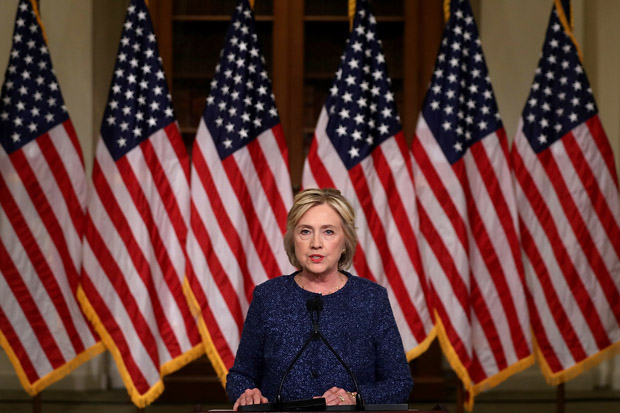It’s been a very patriotic weekend, ablaze with Union flags. In London there was the Last Night of the Proms at the Royal Albert Hall, and in South Northamptonshire there was the ninth annual ‘Village at War’ festival at Stoke Bruerne on the Grand Union Canal. I watched the first event on television but attended the second in person, because Stoke Bruerne is where I spend my weekends. These events, of course, were rather different in scale, but both evoked times of Britain’s greater glory and both took place under the shadow of the Brexit referendum in June. My own vote was in favour of remaining in the European Union, but I was part of the minority in South Northamptonshire, where 54.3 per cent of voters chose to leave. The majority followed our Brexiteer MP, Andrea Leadsom, who achieved such celebrity during the referendum campaign that she even aspired briefly to the premiership.
I have pointed out before that Stoke Bruerne is a strange place to hold such an event. In the 1940s the village was only ‘at war’ in the sense that the whole country was at war, for its own part in it could hardly have been more insignificant. None of its citizens was killed or wounded in the conflict; and while the village mustered two motorcars, one motorbike, 12 bicycles and 13 wheelbarrows for use against the enemy if the Germans invaded, there was no invasion and none of these things was ever needed.
But the festival is not so much celebratory of Stoke Bruerne’s war effort as a nostalgic exercise in re-enactment of life in the wartime years. Several thousand people turned up in period costume or military uniform to gawp at impersonators of Winston Churchill, Field Marshal Montgomery and George Formby, watch war games and a flypast of old wartime aircraft, and enjoy cream teas in the open air. There was no overt Brexit triumphalism, but even so the referendum seemed to bestow more substance on the previously vapid flag-waving.
The same might be said about the embarrassing antics of the promenaders as they engaged in their usual pretence of believing that Britain still ruled the waves and had ever wider bounds. The referendum result might even have convinced them that the return of British supremacy was finally conceivable as they jigged up and down in puerile fashion to the rhythm of the music. But the feared confrontation between Leavers and Remainers failed to materialise. Leading Brexiteers had expressed outrage at the flooding of the concert hall with European Union flags, calling it a provocation by EU enthusiasts in defiance of the people’s will. But as it turned out, peace and harmony prevailed between the two sides.
The Proms, the world’s largest classical music festival, has become increasingly international over the years, making it seem almost as odd a place as Stoke Bruerne for a demonstration of patriotism. But in fact it worked well. The great Peruvian tenor Juan Diego Flórez sang ‘Rule Britannia’ wearing the costume of an Inca chieftain and sang a love song while clutching a stuffed doll of Paddington Bear; and the Finnish conductor, Sakari Oramo, was a foreigner equally at ease with this anomaly.
There remains a legacy of bitterness among Brexiteers over the way they were derided by the EU loyalists during the campaign. Instead of rejoicing in their victory, they continue to behave as victims of the people they beat. They accuse the Remainers of whining and sulking about their defeat instead of accepting it with grace and dignity. It is clear now that many Remainers caused their own defeat by their dismissive treatment of their opponents, portraying them as racists and Little Englanders. The Tory leadership didn’t help by describing Ukip supporters as swivel-eyed; nor did Barack Obama by urging British voters to support the EU. They turned many ditherers into Brexiteers, for people don’t like being talked down to or being told by foreigners how to behave. It fuels the seething resentment of the establishment order, now apparent all over the world.
This is why I now feel it quite likely that Donald Trump will be the next president of the United States. This is not because of Hillary Clinton’s pneumonia or her lack of openness about her health; it is because she called Trump supporters a ‘basket of deplorables’. With this she has probably dug her grave. She should have paid a little attention to Britain’s referendum.
The post Long life appeared first on The Spectator.
Got something to add? Join the discussion and comment below.
Get 10 issues for just $10
Subscribe to The Spectator Australia today for the next 10 magazine issues, plus full online access, for just $10.
You might disagree with half of it, but you’ll enjoy reading all of it. Try your first month for free, then just $2 a week for the remainder of your first year.













Comments
Don't miss out
Join the conversation with other Spectator Australia readers. Subscribe to leave a comment.
SUBSCRIBEAlready a subscriber? Log in